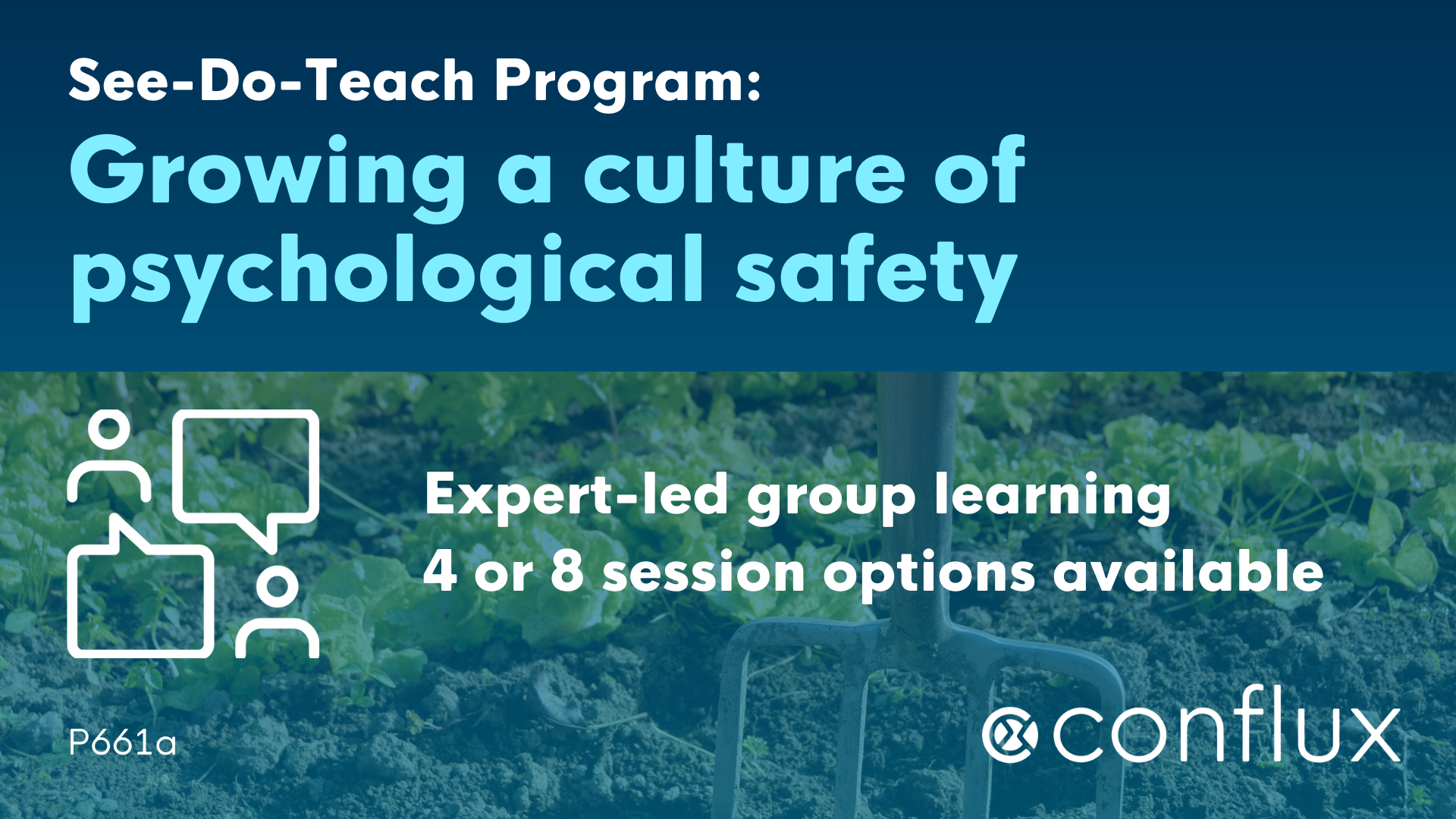Our organizational OS needs an upgrade: why knowledge works needs a new approach
Introduction: knowledge work needs psychological safety
Many aspects of how organizations work today just seem like the ‘natural’ way that things have always been and are supposed to be. Organizations structured as top-down hierarchies, a focus on efficiency and productivity, work split across specialized, functional silos. Leaders at the top of the hierarchy who do the thinking and planning and make decisions; workers at the bottom who simply execute on those plans and do the day-to-day work. But these ways of working, and these ways of thinking, stem from a bygone time; they were developed for the factories and assembly lines of the early 20th century - a very far cry indeed from the complex and fast-paced world of today’s knowledge economy. Organizations engaged in knowledge work can no longer afford to use these outmoded ways of working. Knowledge work needs a new approach - a new Operating System (OS) - and psychological safety is key.
Taylorism is not the ‘natural order’
A revolution took place at the turn of the 20th century. An American industrialist called Frederick Winslow Taylor devised a new way of organizing and managing work, called Scientific Management, that utterly transformed and revolutionized how work was done and revolutionized even how we think about work. It was a phenomenal, global success and, from the beginning of the 20th century, it quickly became established as the de facto way of organizing ourselves and managing our work: offices, factories, hospitals, schools.
But what started as a revolution has become so established that now we don’t even question its existence. Taylor’s ideas and practices have become so pervasive and prevalent and normalized into the fabric of our working lives that we tend to just think that’s how things are naturally meant to be. In 2001, Taylor’s book, ‘The Principles of Scientific Management’, published in 1911, was voted by the US Academy of Management as the most influential management book of the 20th century.
People aren’t just ‘cogs in a machine’
At its core, the main premise of Scientific Management (also known as Taylorism) is that there is always one best way to do any job, the most efficient way: it is all about being efficient, saving time, and improving productivity. Taylor studied how work was done in factories - he watched how people did their individual jobs and he timed them - and then he came up with ways to do each small task slightly better, slightly faster. These small improvements might not have seemed much in themselves but when repeated across a whole factory - over thousands of tasks, each repeated thousands of times a day - the results could be staggering.
Another key aspect of Taylor’s approach was to break complex tasks down into a number of much smaller, simpler tasks - each with a set of very simple instructions for the one best way for it to be carried out. Workers no longer needed to understand the whole process, they didn’t need to know or understand how their small task fitted into the larger whole, they just needed to perform their small task as efficiently, routinely, and as productively as possible.
However, Taylor’s ideas didn’t just extend to the work itself, he also had some misguided, if not downright offensive, ideas about the people doing the work. He didn’t really see them as people at all, but viewed them as tools, as cogs in the machine, that could be replaced and discarded as necessary. He thought that workers were lazy, stupid and ignorant and needed to be controlled by intelligent managers who would do all the thinking that was required and make all necessary decisions.
This new way of doing things did present huge advantages for factory owners however. Manufacturing costs were massively reduced because the work could be completed more efficiently and quickly. Not only did it take fewer people to do the work but the work itself was now far less skilled which meant that it was far less well-paid and could now be done by anyone which also has the effect of pushing wages down as hiring people is easy.
One of the most famous examples of Taylorism in practice was at the first Ford car factory in Detroit. When Henry Ford first started manufacturing cars in 1903, each car took approximately 12 hours to build. In 1908, when he started building his famous Model T car, Ford hired Taylor to improve productivity at his factory. By 1913, the time it took to build each car had been reduced from 12 hours to just 93 minutes.
As observed in the excellent book Team of Teams (which has a fascinating potted biography of Taylor for anyone who’s interested in learning more about him) the promise of Taylorism was “More, faster, with less’. (Team of Teams, General Stanley McChrystal)
Knowledge work needs empowered people with agency… and psychological safety
For many of us, Taylor’s methods and ideas are still what govern our working lives despite the fact that the work we do, and the world we live in, has changed pretty much beyond recognition since Taylor’s time.
Just think of the changes to technology and global communications that have happened in the last 5 or 10 years, 20 years. Mobile phones, social media, online retail, the cloud, everything-as-a-service, Spotify and Netflix. Consider the rise of artificial intelligence and crypto currencies. The world of work has changed dramatically in just the last two years alone because of the Covid pandemic and, to a large degree, it is technology that has fueled that change with tools such as Zoom, Miro, and Slack
But, even though the technology has changed, in many organizations, their ways of working haven’t. They’re using today’s technology - building, delivering, and operating software in the cloud - but they’re trying to do that with ways of working that were perfected for the early 20th century, the ways of working that transformed Ford’s factory in 1908.
I think this is why so many tech companies are struggling to do software well, struggling to do deployments faster, struggling with how to deal with technical debt. They’re still using ideas and methods developed by Taylor over a hundred years ago and it just isn’t a good fit for organizations looking to achieve a fast flow of change. To optimize for a fast flow of change requires a different approach; it requires long-lived teams that build and own their services end-to-end, it requires that we adopt a ‘team-first’ approach that is antithetical to the ideas and practices of Scientific Management.
In Taylor’s time the work was predictable, well-understood, and the goal was to standardize it, make it repeatable, remove variation, reduce it down to simple tasks that anybody could do without question. But technology today doesn’t work like that. Tech isn’t about following a set of instructions and simply repeating one small task over and over again. And the bits of tech that are like that, we automate! Requirements are not clearly understood and well-defined upfront, they’re different each time, and they’re emergent - we don’t usually know what’s needed until we actually start building the thing. We’re solving a different problem each time.
No one person has the knowledge or expertise to solve these problems alone. The Tayloristic idea of the intelligent, thoughtful manager at the top of the hierarchy making all the decisions just doesn’t cut it any more. This is knowledge work and it requires different ways of working.
It requires experimentation and fast feedback, teamwork and collaboration, it requires us to be engaged and switched-on. We need to use all our talents, creativity, and problem solving skills. In short, we need to bring our brains to work with us - we are not simply cogs in a machine - and that means that we also need to bring our voices to work with us.
Psychological safety is key for effective adaptive organizations
We need to feel comfortable to use our voices at work and to speak up; we need to feel psychologically safe. Dr Amy Edmondson, professor of Leadership and Management at Harvard Business School and leading researcher on psychological safety, defines it as “the belief that one will not be punished or humiliated for speaking up with ideas, questions, concerns, or mistakes”.
To ensure their own success, organizations need to make the most of their people and their skills and they must intentionally create environments where psychological safety thrives, environments where people feel safe to speak up: to collaborate with colleagues, to suggest new ideas, to ask searching questions, to give candid feedback, to voice concerns, to acknowledge and celebrate failure, to admit mistakes, and to learn from each other.
There is much evidence of the importance and positive benefits of psychological safety in our workplaces. Dr Amy Edmondson has led a lot of research in this field which she describes in her excellent book, ‘The Fearless Organization’.
Google also conducted their own research with their now-famous ‘Project Aristotle’. This was a 2-year research project, started in 2012, that set out to discover what was the most important aspect determining high performance in Google’s teams. They studied a large number of teams and examined many different aspects of each team: educational background, did the team socialize together outside of the office, did they have the same hobbies, what was the balance of extroverts and introverts, they looked at gender balance in the team. What they discovered is that the single most important factor that contributes to team success is the presence of psychological safety within the team. Teams which had psychological safety - where all members of the team felt safe to speak up, to contribute their ideas, to challenge others’ ideas - these were the ones which excelled.
Summary: psychological safety is key for solving novel problems
Organizations engaged in knowledge work must recognise that many of their current ways of working are the legacy of a bygone era and are no longer applicable or effective in today’s world. They need to adopt a new approach to how they do their work. Knowledge work requires teamwork and collaboration; it requires that people are engaged and switched on, able to use all their talents and creativity to solve hard and novel problems.
Psychological safety is key to this new approach because, to work in this way, people must have workplaces and teams where they feel safe. They need to feel safe to speak up to contribute their ideas, feel that it’s ok to challenge others’ ideas, that they can be open about mistakes, where they feel safe to experiment and innovate, to fail and to learn.








